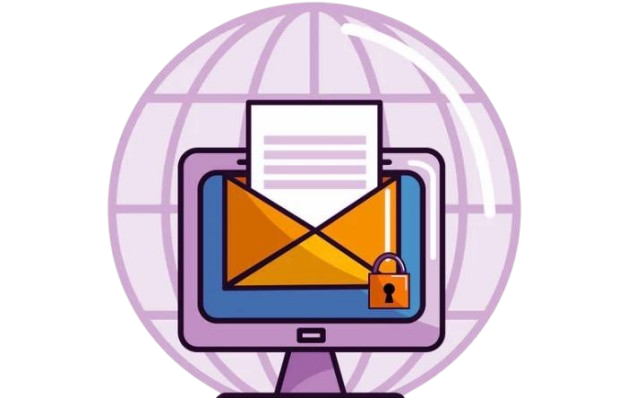Maximize Your Email Security With Expert
DMARC Reporting Services And Insights
DMARC Reporting Services And Insights
In today's digital landscape, email remains one of the most popular communication channels for businesses and individuals. However, it also presents significant security risks, such as phishing, spoofing, and fraud. Cybercriminals frequently exploit weaknesses in email systems to deceive recipients, causing financial and reputational damage. To combat these threats, businesses are turning to Domain-based Message Authentication, Reporting, and Conformance (DMARC) as a critical tool for enhancing email security.
Understanding DMARC and Its Role in Email Security
DMARC is a protocol designed to help both email senders and recipients confirm the legitimacy of their email communications. It achieves this by integrating SPF (Sender Policy Framework) and DKIM (DomainKeys Identified Mail), which work together to identify and thwart email spoofing and phishing attempts. This method of authentication guarantees that emails originate from verified sources, thereby minimizing the risk of malicious entities posing as your brand.

The Importance of DMARC Reporting
While DMARC is designed to prevent fraudulent emails, its true power lies in the reporting features it offers. DMARC reporting provides valuable insights into email traffic, enabling organizations to identify and mitigate security risks.
Collecting DMARC Reports
Once DMARC is configured, email receivers send reports back to the domain owner. These reports include valuable information on authentication results and any issues encountered during email transmission. There are two main types of reports:
- Aggregate Reports: These reports provide an overview of email activity, including the number of messages that passed or failed DMARC, SPF, and DKIM checks. Aggregate reports allow domain owners to monitor trends and identify potential vulnerabilities in their email security posture.
- Forensic Reports: These detailed reports contain information about specific messages that failed DMARC authentication. Forensic reports offer a deep dive into individual email incidents, including the source of the attack and other critical data that can help diagnose and resolve issues.
Analyzing DMARC Reports
The raw data from DMARC reports may seem overwhelming at first, but the insights they provide are invaluable for improving email security. By analyzing these reports, businesses can identify several key factors:
- Source of Email Traffic: Understanding which servers or IP addresses are sending emails on behalf of your domain helps you detect unauthorized sources.
- Authentication Failures: DMARC reports highlight emails that fail SPF or DKIM authentication, providing clues to spoofing attempts and phishing campaigns.
- Domain Alignment: Monitoring how well your SPF and DKIM records align with DMARC policies allows you to fine-tune your email authentication mechanisms.
Regular analysis of DMARC reports ensures that your email security measures are continuously improving, giving you the ability to respond quickly to emerging threats.
The Benefits of Expert DMARC Reporting Services
While DMARC offers powerful security features, managing and analyzing DMARC reports can be complex and time-consuming. This is where expert DMARC reporting services come into play. These specialized services can help organizations streamline the process and maximize their email security with advanced tools and professional expertise.
Simplifying DMARC Implementation
For companies unfamiliar with DMARC, the process of implementing it can appear overwhelming. However, DMARC reporting services make this easier by assisting organizations in navigating the technical aspects, including generating the necessary DNS records, setting up SPF and DKIM, and establishing a DMARC policy. Professional service providers also share best practices and advice to help ensure that your email authentication approach meets industry benchmarks.
Expert Insights and Recommendations
DMARC reporting services also provide valuable insights into your email security posture. With years of experience and deep industry knowledge, these experts can analyze your DMARC data and offer actionable recommendations. Whether it's fine-tuning your DMARC policy or addressing specific vulnerabilities, these professionals can help you optimize your email authentication mechanisms for maximum protection.
How to Choose the Right DMARC Reporting Service
When selecting a DMARC reporting service, it's essential to choose a provider with a proven track record of success and expertise. Here are some factors to consider when making your decision:

Experience and Reputation
Look for a service provider with a strong reputation in the email security space. Experienced providers will have a deep understanding of DMARC, SPF, and DKIM, and will be able to offer valuable insights and recommendations based on their industry knowledge.
Comprehensive Features
Ensure that the service offers a comprehensive range of features, including real-time monitoring, detailed reporting, and customizable dashboards. Additionally, check if the provider offers support for both aggregate and forensic reports, as well as the ability to analyze and interpret complex data. Discover more by clicking this source.